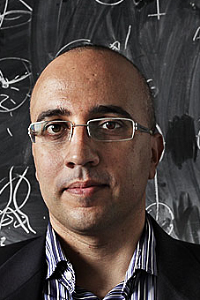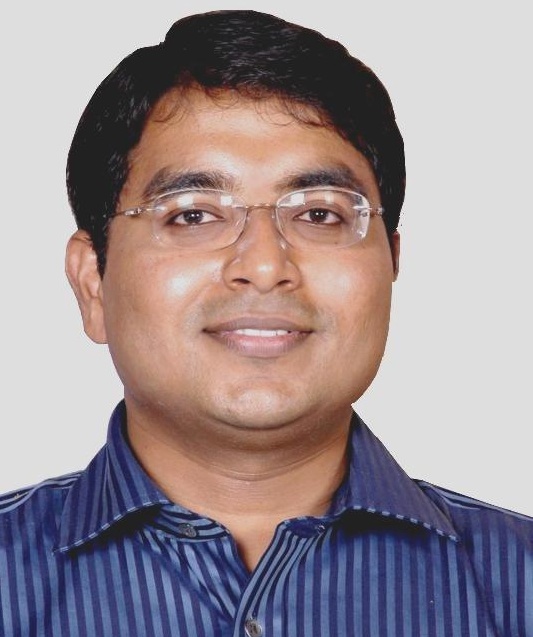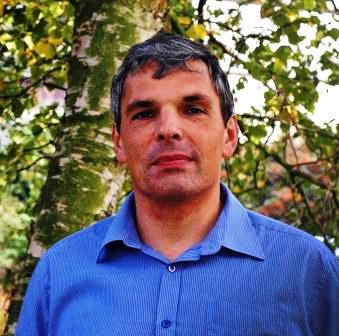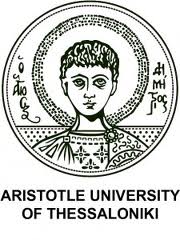Keynotes
Prof. Santo Fortunato

Bio
Santo Fortunato is Professor of Complex Systems at the Department of Biomedical Engineering and Computational Science of Aalto University, Finland. Previously he was director of the Sociophysics Laboratory at the Institute for Scientific Interchange in Turin, Italy. Prof. Fortunato got his PhD in Theoretical Particle Physics at the University of Bielefeld In Germany. He then moved to the field of complex systems. His current focus areas are network science, especially community detection in graphs, computational social science and science of science. His research has been published in leading journals, including Nature, PNAS, Physical Review Letters, Reviews of Modern Physics, Physics Reports and has collected over 10,000 citations (Google Scholar). His review article Community detection in graphs (Physics Reports 486, 75-174, 2010) is the most cited paper on networks of the last years. He is the recipient of the Young Scientist Award in Socio- And Econophysics 2011 from the German Physical Society.
Subject: “Detecting communities in networks”
Abstract
Finding communities in networks is crucial to understand their structure and function, as well as to identify the role of the nodes and uncover hidden relationships between nodes. In this talk I will briefly introduce the problem and then focus on algorithms based on optimization. I will discuss the limits of global optimization approaches and the potential advantages of local techniques. Finally I will assess the delicate issue of testing the performance of methods.
Prof. Krishna Gummadi

Bio
Krishna Gummadi is a tenured faculy member and head of the Networked Systems research group at the Max Planck Institute for Software Systems (MPI-SWS) in Germany. He received his Ph.D. (2005) and M.S. (2002) degrees in Computer Science and Engineering from the University of Washington. He also holds a B.Tech (2000) degree in Computer Science and Engineering from the Indian Institute of Technology, Madras. Krishna's research interests are in the measurement, analysis, design, and evaluation of complex Internet-scale systems. His current projects focus on understanding and building social Web systems. Specifically, they tackle the challenges associated with protecting the privacy of users sharing personal data, understanding and leveraging word-of-mouth exchanges to spread information virally, and finding relevant and trustworthy sources of information in crowds. Krishna's work on online social networks, Internet access networks, and peer-to-peer systems has led to a number of widely cited papers and award (best) papers at ACM/Usenix's SOUPS, AAAI's ICWSM, Usenix's OSDI, ACM's SIGCOMM IMW, and SPIE's MMCN conferences.
Subject: “Understanding Information Exchange in Social Media Systems”
Abstract
The functioning of our modern knowledge-based societies depends crucially on how individuals, organizations, and governments exchange information. Today, much of this information exchange is happening over the Internet. Recently, social media systems like Twitter and Facebook have become tremendously popular, bringing with them profound changes in the way information is being exchanged online. In this talk, I will focus on understanding the processes by which social media users generate, disseminate, and consume information. Specifically, I will investigate the trade-offs between relying on the information generated by (i.e., wisdom of) crowds versus experts and the effects of information overload on how users consume and disseminate information. I will also highlight limitations of our current understanding and argue that an improved understanding of information exchange processes is the necessary first step towards designing better information retrieval (search or recommender) systems for social media.
Prof. Mike Fisher

Bio
Mike Fisher is a Chief Researcher in the Research and Innovation Department of BT. Following a PhD in Physics from University of Surrey, he joined BT and worked on "blue sky" research projects investigating semiconductor optical materials and devices. He later moved into distributed systems where his research interests have included policy-based management, active networks, Grid computing, Cloud computing and most recently the Internet of Things. Mike has had a strong involvement in collaborative projects on these topics at national and European level. He was involved in the establishment of the NESSI European Technology Platform and was the Chairman of the ETSI Technical Committee responsible for Grid and Cloud. His current focus is on information-centric network services that can enable improved exchange of information, and the value that these can deliver.
Subject: “Connected Communities”
Abstract
Any process or activity can be improved by timely access to better information. The long-held vision of a connected world is now becoming a reality as technological advances make it increasingly cost-effective to publish, find and use a huge variety of data. New ways of managing information offer the potential for transformational change, with the network as the natural point of integration.
In this talk I will describe some of our recent work exploring technologies to promote sharing in communities unified by an interest in similar information. This will include experiences in a number of sectors including transport, supply chain and future cities.

